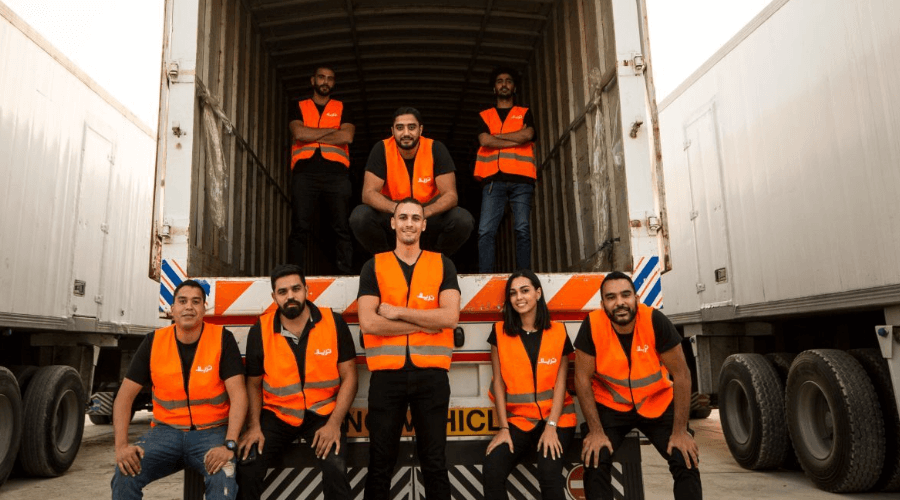What's next for Egypt's Trella?

They are typically a nuisance on the road, imposing and rather dangerous, but lorries or trucks, are incredibly important to the global economy. They are the “first mile” in the logistics sector, the initial step in moving goods out of factories and warehouses and during the pandemic last year, became the most feasible option for freight when planes were grounded.
The global trucking sector is set to reach $5.5 trillion by 2027 and in the Middle East and North Africa (Mena) several startups have emerged over the past few years to apply a layer of technology change to this traditional industry. They include UAE-based Trukkin, LoadME and Trukker which this month acquired Pakistan’s TruckSher. In Egypt, the biggest player is Trella, launched in 2018 by Omar Hagrass, Ali El Atrash, Pierre Saad and Muhammad El Garem, which recently raised $42 million in debt and equity in a round led by global shipping giant, Maersk.
“Trucking never really stops, everything around you has been on a truck, the only thing not moved by a truck is air,” says CEO Hagrass. “So, if you provide a product or solution that adds value [to the sector] and brings costs down, it will be transformational.”
Hagrass describes Trella as an “Uber for trucks”, a digital freight marketplace connecting shippers with carriers who can book their loads on both legs of their journey. The startup offers transparent pricing, real-time tracking of shipments and analytics software for shippers. Prior to founding Trella, Hagrass headed up Uber Eat’s expansion efforts in Europe, Middle East and Africa and it was here that he realised the opportunity for a software-based marketplace model for trucks.
“The first time I noticed there is a very solid combination between operations and tech was when I started at Uber. I learned this is what a marketplace means, you need very strong software, but you also need to flex your muscles on the operational front,” he says.
But Hagrass did not realise just how difficult it would be to launch such a product without the vast backing and operational capacity he had had while at Uber.
“When we first launched Trella, we thought it would be as easy as when we did it with Uber, but you don’t have 5000 engineers, you don’t have billions of dollars in your bank account, you don’t have global knowledge share.”
Trella’s entire engineering team currently sits in Egypt.
In the short amount of time since its launch, Trella acquired Egyptian rival Trukto and expanded to Saudi Arabia and Pakistan and was part of Y Combinator’s Summer 2019 cohort.
“The KSA market is completely different than Egypt, it is more regulated, more advanced and the infrastructure is already there. When we built our product, we built it not just to serve Egypt, so launch and expansion for us is easy,” says Hagrass.
Trella is now focusing its expansion efforts on the GCC and North Africa, with long-term plans to target both East and West Africa.
Challenges
Moving goods via trucks is up to five times more expensive in Africa than in Europe or the US according to Hagrass, mostly due to the vast inefficiencies in the sector. Trucks that go from point A to point B end up returning empty or staying for several days until they have something to take back to the point of origin.
“A lot of the loads that go from Egypt to Sudan or Libya have to wait three or four days to get the backload,” says Hagrass. “If they don’t, then they double the fair for Egyptian companies. On average it takes 15 to 16 per cent of the costs just on moving the goods in Africa, versus less than 7 per cent in Europe.
“What we’re really trying to solve is how we can make sure those vehicles and drivers are efficiently utilised, they take a load from Egypt to Sudan and they have a load from Sudan to Egypt.”
One another issue that these trucking startups face is collection of payment.
“The most stressful part is money collection, it’s not automated, we still need to collect cheques and still need customers to do wire transfers,” says Hagrass who recognises the potential of adding a fintech aspect to his offering. “There is a lot of product development and features we want to do, but right now, we’re focused on getting the trucking piece right and then the sky’s the limit.”


